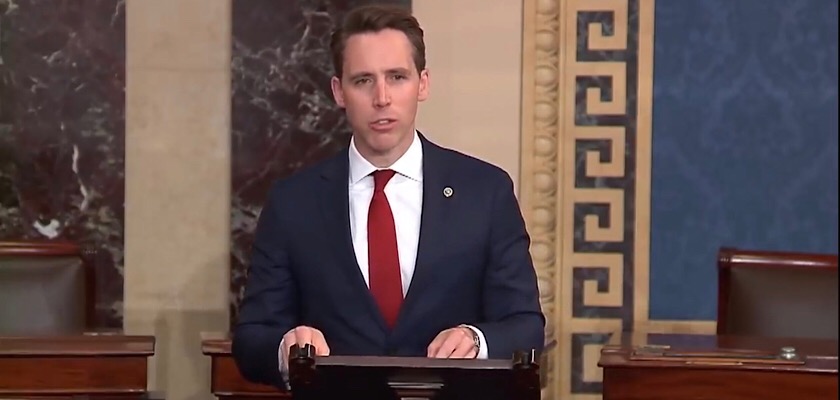Republican Senator Josh Hawley has released a statement on Facebook’s “Review of Potential Anti-Conservative Bias” and suggested that it’s not a genuine audit and won’t provide any real solutions.
In his full statement, Hawley said:
“Merely asking somebody to listen to conservatives’ concerns isn’t an ‘audit,’ it’s a smokescreen disguised as a solution. Facebook should conduct an actual audit by giving a trusted third party access to its algorithm, its key documents, and its content moderation protocols. Then Facebook should release the results to the public.”
Senator Jon Kyl, who is conducting the review of potential anti-conservative bias on Facebook, said in his conclusions that:
“Facebook’s policies and their application have the potential to restrict free expression. Given the platform’s popularity and ubiquity, this is a danger that must be taken very seriously.”
However, as Hawley notes, the bulk of Kyl’s report contains a list of concerns which were raised by conservatives and a list of commitments from Facebook which don’t give any third parties access to its algorithms, documents, or content moderation protocols.
Specifically, Kyl’s report raises six main concerns from over 130 conservative politicians and organizations:
- Content distribution and algorithm concerns: These include concerns over changes to the Facebook algorithm disproportionately decreasing the reach of conservative news content and Facebook approved fact-checking organizations skewing to the ideological left.
- Content policy concerns: Conservative interviewees expressed concerns over the highly subjective nature of what constitutes “hate speech” and Facebook’s reliance on the Southern Poverty Law Center (SPLC) when designating “hate organizations, with many conservatives viewing the SPLC as an “extreme organization intent on defaming conservatives.” The interviewees added that Facebook’s community standards often disproportionately affect conservative content, particularly pro-life, socially conservative, and religious content.
- Content enforcement concerns: The main concerns raised in this area were Facebook unfairly removing or downgrading conservative content more frequently than liberal content and the lack of transparency in Facebook’s appeals process.
- Ad policy concerns: Some of these concerns include Facebook’s ad policies being inconsistent with Internal Revenue Service (IRS) definitions and election law and that the banning of certain ad categories could result in the disproportionate removal of conservative ads e.g. Facebook’s ban on “shocking or sensational content” often leads to the removal of pro-life ads featuring premature babies.
- Ad enforcement concerns: The top concerns in this area include conservative ads being disproportionately removed or rejected in comparison to liberal ads and the appeals process for rejected ads disadvantaging groups that lack contacts at Facebook.
- Workforce viewpoint diversity concerns: Many of the conservative interviewees said they had concerns over Facebook being “a liberal organization with liberal employees” which makes them skeptical that Facebook’s policies are fairly written or enforced.
The report from Kyl then goes on to list three main changes and commitments from Facebook in the areas of:
- Transparency: Facebook committed to helping users better understand news feed content and rankings, making its enforcement decisions more transparent, and releasing more information on how its community standards evolve.
- Oversight and appeals: Facebook says it will be creating an oversight board for content decisions and “ensuring oversight board viewpoint diversity.” Facebook also notes that it has created an appeals process for removed posts.
- Advertising policies: Facebook says that it has changed some of its political ad labeling and changed its “sensational” advertising policies to allow some pro-life ads that were previously prohibited.
In its response to this report, Facebook says: “We know we need to take these concerns seriously and adjust course if our policies are in fact limiting free expression in an unintended way.”
Hawley statements come after Facebook’s conservative bias audit has received widespread condemnation from conservatives and liberals. The president of the conservative Media Research Center Brent Bozell said the report “stunningly fails to admit fault or wrongdoing“ while the left-leaning Change the Terms coalition, which believes big tech companies should “do more to combat hateful conduct on their platforms,” described the report as “nothing more than political propaganda disseminated by a conservative leader.”
Even Facebook’s response to the audit casts doubt over the company’s sincerity. For example, part of its response reads:
“While we err on the side of free speech, there are critical exceptions: we don’t allow content that might encourage offline harm or is intended to intimidate, exclude or silence people.”
Yet while this audit was being conducted, Facebook temporarily allowed “threats that could lead to death” if they’re against their designated “Dangerous Individuals” – a decision that directly contradicts this statement.













